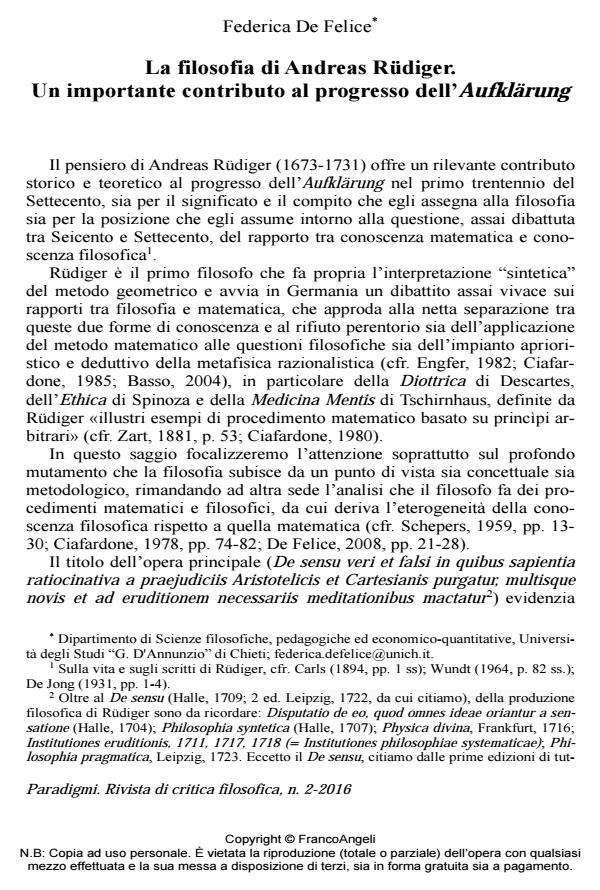Philosophy. A Significant Contribution to the Development of the German Enlightenment
Journal title PARADIGMI
Author/s Federica De Felice
Publishing Year 2016 Issue 2016/2
Language Italian Pages 14 P. 171-184 File size 197 KB
DOI 10.3280/PARA2016-002013
DOI is like a bar code for intellectual property: to have more infomation
click here
Below, you can see the article first page
If you want to buy this article in PDF format, you can do it, following the instructions to buy download credits

FrancoAngeli is member of Publishers International Linking Association, Inc (PILA), a not-for-profit association which run the CrossRef service enabling links to and from online scholarly content.
In this essay the author aims to point out Rüdiger’s theoretical and historical influence on the German Enlightenment in the first thirty years of the Eighteenth Century. In particular she analyses Rüdiger’s theory of knowledge and his doctrine of probability and shows the deep change that "philosophy" undergoes both conceptually and methodologically.
Keywords: Empiricism, German Enlightenment, Probability, Rüdiger, Theory of knowledge.
Federica De Felice, La filosofia di Andreas Rudiger. Un importante contributo al progresso dell’Aufklarung in "PARADIGMI" 2/2016, pp 171-184, DOI: 10.3280/PARA2016-002013